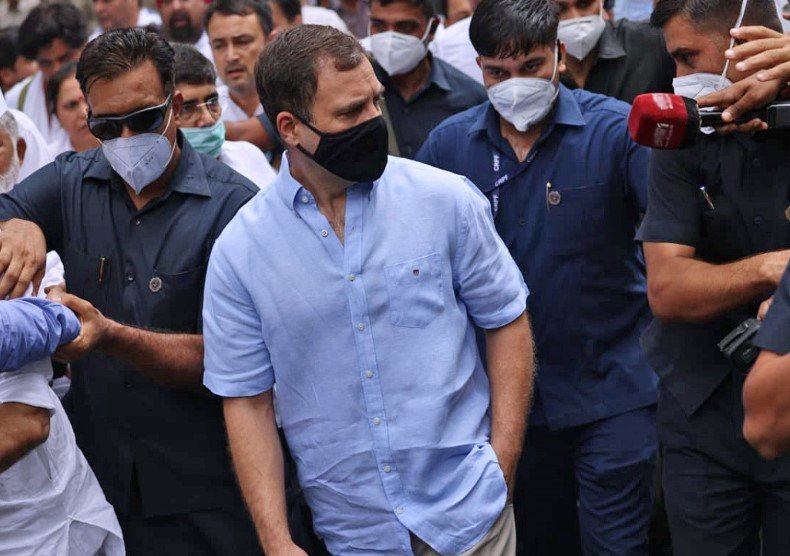The Enforcement Directorate (ED) has filed a chargesheet against senior Congress leaders Sonia Gandhi and Rahul Gandhi, along with five others, in a high-profile money laundering probe connected to the National Herald case. The move, which comes after a lengthy investigation, has sparked political uproar, with the Congress party calling it an act of “politics of vendetta and intimidation.”
The Chargesheet and Allegations
On April 9, 2025, the ED submitted the chargesheet in a special court, naming Sonia Gandhi, Rahul Gandhi, and five others. The case revolves around allegations that the Congress leaders, through their company Young Indian, acquired Associated Journals Limited (AJL)—the publisher of the National Herald newspaper—for an alleged token sum of Rs 50 lakh. However, the market value of AJL’s assets is reported to be more than Rs 2,000 crore. This has led to accusations of money laundering and financial impropriety.
The ED’s investigation found sufficient evidence of money laundering, prompting them to file the chargesheet. The probe centers on the sale of AJL’s assets, which include valuable real estate holdings in cities such as Delhi, Mumbai, and Lucknow. These assets have been valued at Rs 5,000 crore in the ED’s findings.
The chargesheet also names several other individuals, including Sam Pitroda, Suman Dubey, and Sunil Bhandari, alongside corporate entities Young Indian and Dotex Merchandise Pvt Ltd.

Political Fallout: Congress’ Reaction
In response to the chargesheet, the Congress party has strongly rejected the allegations, calling them politically motivated. Senior party leaders, including Sonia Gandhi and Rahul Gandhi, have framed the charges as part of a larger effort to intimidate and undermine the opposition. The Congress has vowed to hold protests outside Enforcement Directorate offices across the country, starting on Wednesday.
Congress spokespersons have argued that the charges are baseless and part of a broader strategy by the ruling Bharatiya Janata Party (BJP) to target opposition leaders. The party has accused the government of using agencies like the ED to harass its political adversaries.
A Long-Running Investigation
The investigation has its origins in a petition filed by BJP leader Subramanian Swamy back in 2013. Swamy had alleged that there were irregularities in the way AJL’s assets were transferred to Young Indian. The petition led to the initiation of tax assessments by the Income Tax Department, which eventually formed the basis for the ED’s money laundering investigation.
The ED has also moved to seize immovable assets linked to the case, including properties worth Rs 661 crore, in Delhi, Mumbai, and Lucknow. These actions have intensified the political confrontation, with Congress accusing the government of overreach.
Legal and Financial Implications
The legal battle is set to intensify in the coming weeks. On Tuesday, April 15, Special Judge Vishal Gogne examined the chargesheet filed by the ED and set the next hearing for April 25. This will mark a significant development in a case that has seen various twists and turns over the years.
The allegations have serious financial and legal implications for the Gandhi family, who have long been influential in Indian politics. The ED’s claims of money laundering, coupled with the seizure of assets, have raised questions about the transparency of transactions involving Young Indian and Associated Journals Limited.
ED’s Broader Strategy
The chargesheet filed by the ED is part of its ongoing probe into alleged money laundering schemes involving high-profile politicians and businesses. The agency’s actions are being closely monitored as they have the potential to reshape political alignments and public perception in the lead-up to state elections.
While the Congress leaders remain defiant, the ED’s investigation has sparked wider concerns about the influence of government agencies in political affairs. The ruling party’s critics view the probe as part of a broader effort to neutralize opposition leaders.
